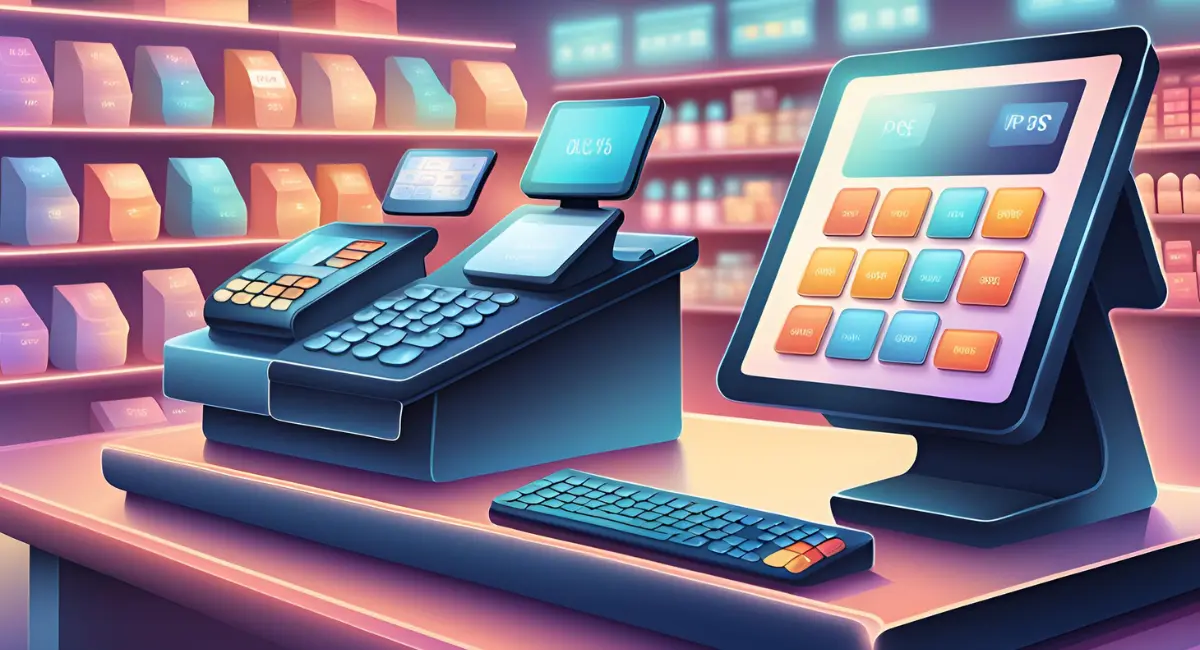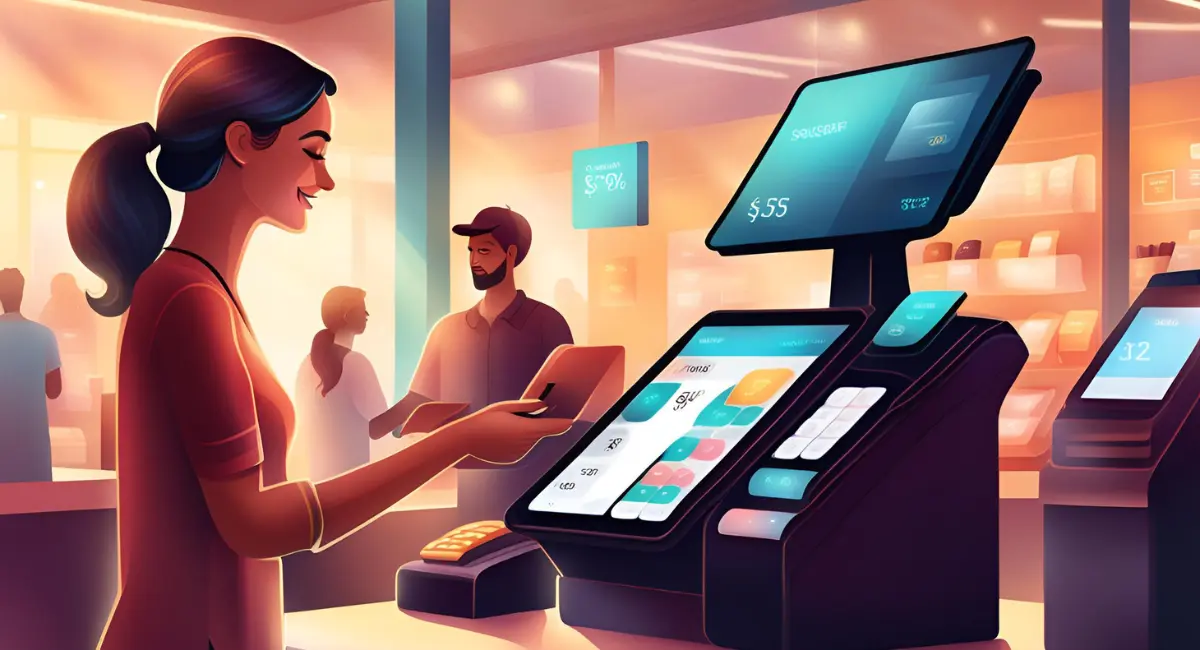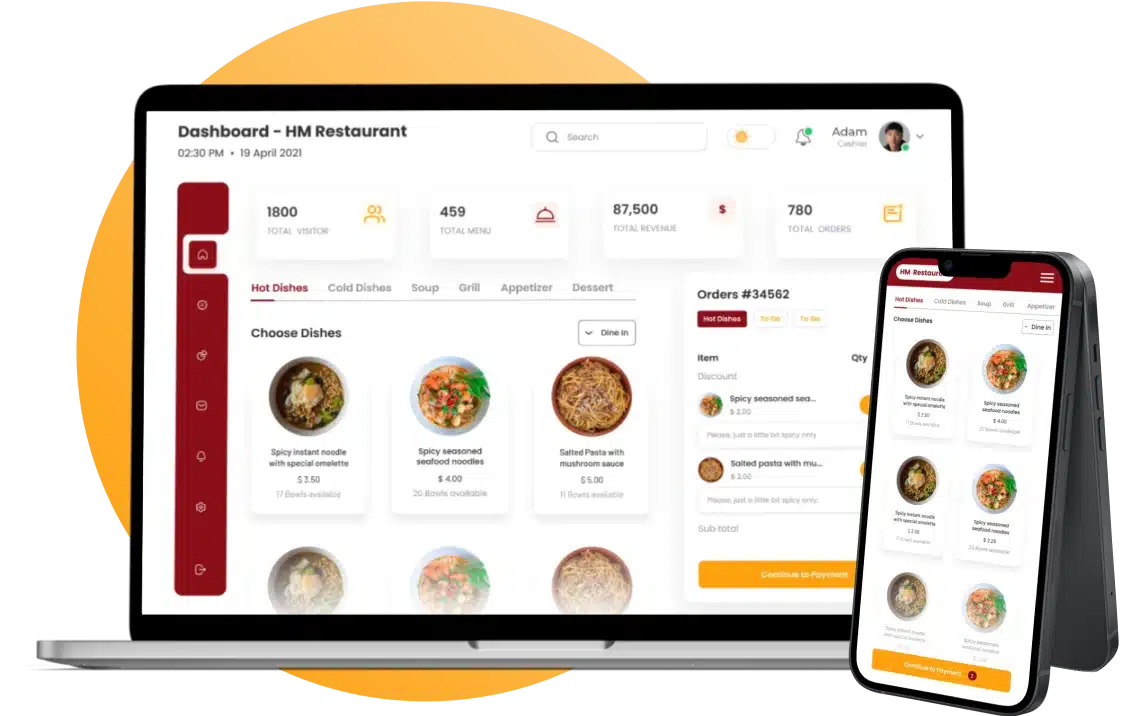Nakarinig ka na ba ng retail pos system dati?
In today’s fast-paced retail environment, POS retail systems have become essential for businesses looking to improve customer experience.
This article will explore modern POS systems, their function, and the many benefits they offer businesses. It will also discuss the different types of retail point-of-sale systems, highlighting the differences between traditional and modern solutions.
Galugarin ang talakayan sa artikulong ito upang maunawaan kung paano ma-optimize ng retail POS system ang iyong mga benta sa negosyo!
Table of Contents
Key Takeaways
|

What is a POS System?
A point of sale (POS) system combines hardware and software to allow businesses to complete sales transactions. At its core, a retail POS system manages everything from sales, inventory tracking, and customer management to reporting and analytics.
Modern POS systems are used across various industries, with retail being one of the largest adopters. The customizable systems allow businesses to integrate different tools for more efficient retail management.
Whether used in physical stores or online, retail POS software ensures businesses can keep up with today’s speed, accuracy, and data management demands.
Many retail point-of-sale systems offer advanced features like cloud-based management, mobile capabilities, and third-party app integrations. These advancements enable retail businesses to operate seamlessly and scale efficiently.
How POS System Works

To understand how POS systems work, it’s important to break down the core components of a retail POS system. The functionality of a modern retail system typically involves several steps.
- Transaction processing: The POS system automatically records each sale and issues a receipt, ensuring accurate accountability and financial reporting documentation.
- Inventory management: It updates stock levels in real time with each transaction, helping businesses maintain accurate inventory and avoid stockouts, ultimately enhancing customer satisfaction.
- Payment processing: The POS system supports multiple payment methods, including cash, cards, and digital wallets, streamlines transactions, enhances security, and reduces fraud risk.
- Data analytics: With real-time reporting and analytics, the system provides valuable insights into sales performance and customer behavior, enabling informed decision-making to drive business growth.
These processes occur seamlessly in modern POS retail systems, including grocery store POS, making the checkout experience faster and more efficient for both the retailer and the customer.
Benefits of POS System
Adopting a POS system in the retail industry has numerous advantages. Modern retail POS systems simplify sales transactions and offer many other benefits that help retailers streamline operations and grow their businesses, especially when integrated with robust retail management software.
- Improved accuracy: automating transactions significantly reduces the risk of human error, ensuring that data collection is both accurate and reliable. This level of precision is crucial for maintaining trust in financial reporting and inventory records.
- Inventory management: real-time inventory management allows businesses to track inventory levels continuously. Real-time inventory visibility allows companies to proactively avoid stockouts and overstock situations, optimizing supply chain efficiency.
- Enhanced customer experience: A faster checkout process and the availability of multiple payment options can enhance customer experience. This streamlines transactions and boosts customer satisfaction, as shoppers appreciate the convenience and speed of their purchases.
- Sales data analysis: Businesses can make better decisions with the help of detailed reports on customer behavior and product performance. This information empowers decision-makers to refine marketing strategies and improve product offerings based on actual consumer trends.
- Mobile capabilities: With mobile POS systems, retailers can serve customers anywhere in the store, reducing wait times. This flexibility reduces wait times and enhances service efficiency, leading to a more enjoyable customer shopping experience.
When looking for the best POS system, it’s essential to evaluate key aspects such as functionality, user-friendliness, integration options, security measures, cost-effectiveness, customer service, and overall reputation.
Types of POS System

Understanding the different types of POS systems can help businesses choose the one that best fits their needs. Here are some of the most common types used in retail:
- On-Premise POS Systems: These systems are hosted locally, meaning the software is installed on the business’s hardware.
- Cloud Based POS Systems: Managed via the internet, these systems allow for remote access and real-time updates.
- Mobile POS Systems: These handheld devices enable businesses to process transactions on the go, making them ideal for pop-up stores or small shops.
- Multichannel POS Systems: These systems integrate online and offline sales, providing a seamless experience across all platforms.
Traditional vs Modern POS System
The shift from traditional POS systems to modern ones has revolutionized the retail industry. In the past, traditional POS systems were limited to basic functionalities, such as processing sales and storing records on-site.
However, modern retail point of sale systems offer a variety of advanced features that make them far more efficient and adaptable.
- Flexibility: Traditional systems often require manual updates, whereas modern cloud-based systems update automatically.
- Mobility: Older systems are confined to a fixed terminal, while modern systems allow mobile capabilities and remote access.
- Integration: Modern POS systems integrate seamlessly with e-commerce platforms, accounting software, and customer relationship management tools, providing essential POS integration that traditional systems cannot match.
This comparison highlights how modern POS systems are essential for businesses that want to stay competitive in today’s retail landscape, especially in markets like the POS system Philippines.
POS Features
Modern retail POS software has a wide range of features catering to different aspects of retail management. Some of the key features consist of:
- Dashboard: Presents business recording history information, allows configuration according to needs, and displays data in real-time in an easily analyzable format.
- Insights: An analytical dashboard for quick and concise business data analysis.
- Invoice: Collects invoice data in real-time, categorizes invoice history into several categories, and generates e-invoices as desired.
- Orders: Collects and displays sales history based on various categories.
- Products: Creates, manages, and categorizes product data into several groups, facilitating the management of product information such as variants, pricing, product composition, and offer packages.
- Promotions/Vouchers & Discount: Manages various promotions, vouchers, and discounts for customers.
- Sale Coupons: Manages various types of sale coupons and gift cards.
- Membership: Manages customer membership data and implements loyalty programs.
- Reporting: Generates various reports related to sales transactions, order analysis, history, discounts, and inventory.
- Database & Logs: Manages the database and system activity logs.
- Configuration: Manages various aspects of the PoS system by customizing it to meet business needs.
All of the features mentioned above play a crucial role in enhancing the accuracy and speed of sales data management.
But don’t worry—all these features are available in HashMicro’s POS-Retail software!
Boost Sales Accuracy with HashMicro POS-Retail

The advantage of using a POS system is crucial because it ensures accuracy and efficiency in managing sales data. A reliable POS system allows for quick and precise calculations of sales ratios, which are important indicators of a company’s financial health.
Optimize your company’s sales management with HashMicro’s POS software! Here are the benefits of choosing our solution:
- Accurately record sales: HashMicro’s POS software allows for precise recording of sales transactions. Every sale is automatically logged, minimizing manual errors and ensuring that all sales data is accurately captured.
- Ensure stock availability: This software helps monitor stock levels in real-time. By keeping track of inventory, it prevents stockouts and overstock situations, allowing you to meet customer demand more effectively and manage inventory efficiently.
- Access real-time information related to sales and inventory: HashMicro provides up-to-date information about sales and inventory. This feature enables managers to make quick, informed decisions based on accurate data, enhancing operational efficiency.
- Analyze best-selling and less popular products: The software includes analytical tools that help identify top sellers and underperforming products.
- Manage customers with a loyalty program: The software supports customer loyalty programs, allowing you to incentivize repeat customers.
- Automatically generate sales reports: HashMicro can automatically create detailed sales reports. These reports aid in understanding sales performance, identifying trends, and planning future business strategies without the need for extensive manual data processing.
By choosing HashMicro’s POS software, you can enhance your sales management with precise calculations and comprehensive analysis tools.
Hayaan ang mga advanced na feature ng HashMicro na i-streamline ang iyong mga proseso sa pagbebenta.

Conclusion
Retail POS systems have become indispensable for modern businesses. POS systems offer many benefits, from improving operational efficiency to enhancing customer experiences.
The future of POS systems lies in their adaptability and ability to grow with the needs of retailers in an ever-changing landscape.
Unlock the potential of your business with HashMicro’s POS Software! Streamline your operations, enhance customer experiences, and boost sales.
Simulan ang pag-optimize ng iyong mga benta ngayon—makipag-ugnayan sa amin para sa isang libreng demo!

FAQ
-
What is a retail POS system?
A retail point-of-sale (POS) system is used by retailers to manage sales transactions, inventory, and customer information efficiently. It typically includes hardware like cash registers and software for processing payments and generating sales reports.
-
What is a retail POS program?
A retail POS (Point of Sale) program is a software solution that enables retailers to process sales transactions, manage inventory, and track customer data in real-time, streamlining operations and enhancing the shopping experience.
-
How does a retail POS system work?
A retail POS system works by allowing sales transactions to be processed at the point of sale, where a customer makes a purchase. It typically includes hardware (like a register and scanner) and software that tracks sales, manages inventory, and records customer information, all in real-time.



































